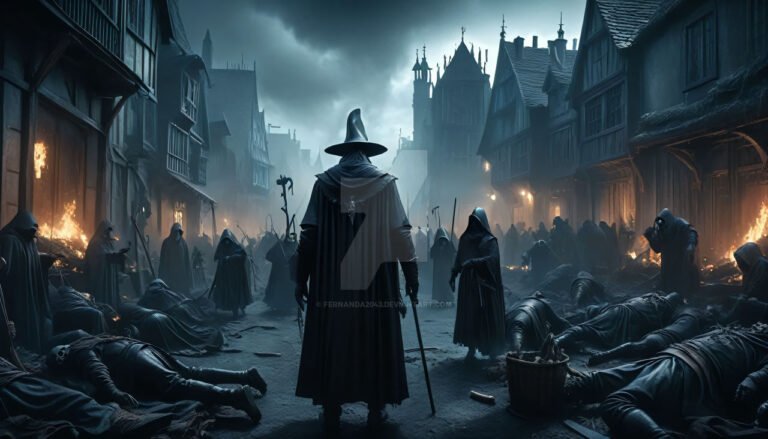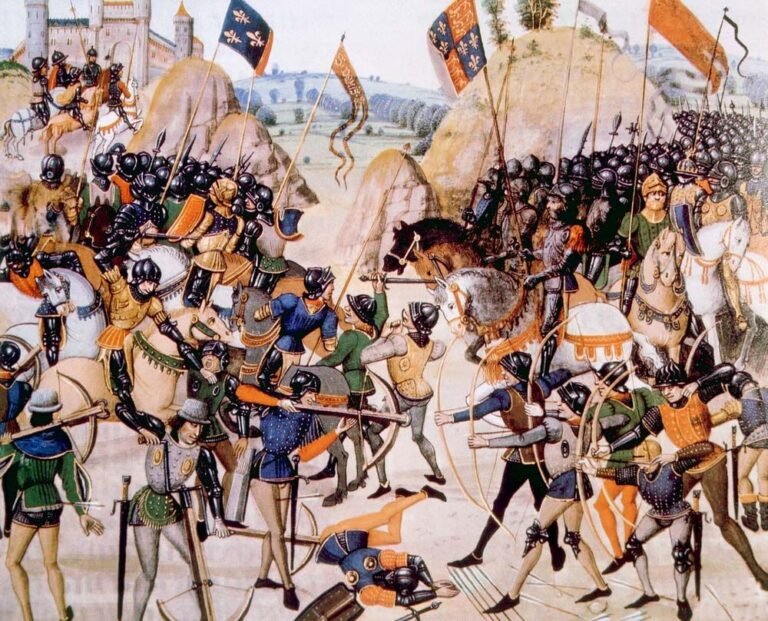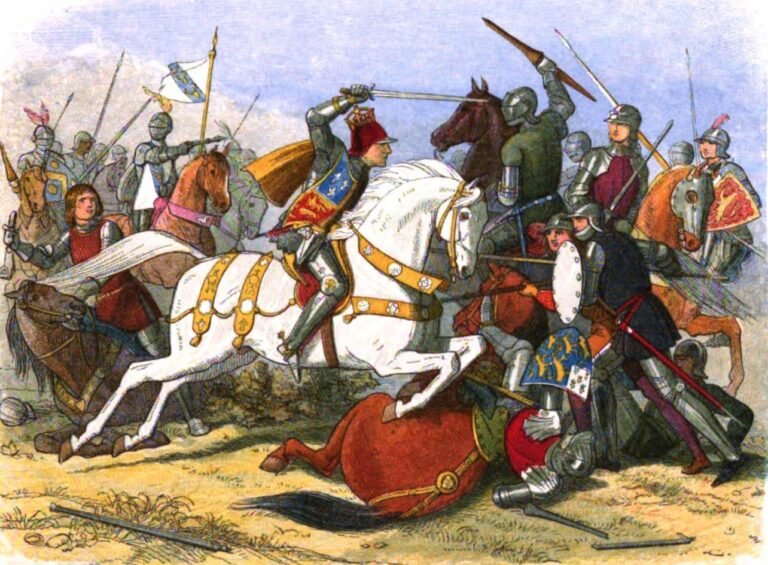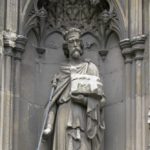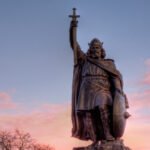King John is a fascinating historical figure. His reign had a significant impact on England.
King John ruled from 1199 to 1216. He is often remembered for his disputes with the barons and the signing of the Magna Carta. This charter limited the power of the king and laid the foundation for modern democracy. Despite his reputation as a controversial ruler, King John’s reign was a turning point in English history.

Understanding his actions and decisions helps us see how they shaped the future. In this blog post, we will explore key aspects of King John’s reign, the challenges he faced, and his lasting legacy. Join us as we delve into the life and times of this influential monarch.
Early Life And Rise To Power
King John, known as John Lackland, was the youngest son of King Henry II. His early years shaped his future rule, filled with family dynamics and political maneuvering.
Childhood And Family
Born in 24 December 1166, John was the fifth son of King Henry II and Eleanor of Aquitaine. His childhood was spent in a large and powerful family. His brothers included Richard the Lionheart and Henry the Young King, both of whom played significant roles in his life.
John’s family was influential in Europe. His mother, Eleanor, was previously married to King Louis VII of France. This made John part of a complex web of alliances and rivalries. His early education prepared him for the political life ahead.
Path To The Throne
John’s journey to the throne was not straightforward. He was not initially expected to rule. His elder brothers, including Richard, were ahead of him in the line of succession. Yet, the deaths of his brothers changed his fate.
In 1189, Richard became king. John was then made the Lord of Ireland. This position gave him administrative experience and power. When Richard went on the Third Crusade, John tried to seize the throne. Though unsuccessful, it showed his ambition.
After Richard’s death in 1199, John claimed the throne. He faced opposition from his nephew, Arthur of Brittany. The conflict ended with Arthur’s mysterious disappearance. John then secured his position as king.

Credit: www.livescience.com
John’s rise to power was marked by struggle and determination. His early life experiences shaped his rule. His story is a mix of family loyalty and rivalry, ambition, and strategic maneuvers.
Reign And Governance
King John ruled England from 1199 to 1216. His reign is often remembered for conflict and strife. His governance had significant impacts on England’s future. This section explores his domestic policies and legal reforms.
Domestic Policies
King John faced many challenges at home. He had strained relations with the barons. The barons were powerful lords who controlled large lands. John’s heavy taxation angered them. He needed funds for wars and personal expenses. The barons saw this as abuse of power. This tension led to the signing of the Magna Carta in 1215.
The Magna Carta was a historic document. It aimed to limit the king’s power. It also sought to protect the barons’ rights. King John agreed to it reluctantly. This charter laid the foundation for future constitutional developments in England.
Legal Reforms
King John’s reign saw significant legal changes. He introduced reforms to improve justice. He aimed to make the legal system more efficient. His focus was on the royal courts. He wanted to centralize legal authority. This led to the establishment of the common law system.
Common law became a key part of English governance. It relied on precedent and judicial decisions. This system allowed for more consistent rulings. It also reduced the influence of local lords over the law. King John’s efforts in legal reforms had lasting effects. They shaped the future of English law and governance.
Military Campaigns
King John, the infamous monarch of England, is often remembered for his contentious military campaigns. His reign saw numerous conflicts, both abroad and at home. These campaigns shaped the course of English history and left a lasting legacy.
Conflicts In France
King John’s military campaigns in France were pivotal. He inherited vast lands in France from his father, Henry II. But he faced constant pressure from the French King, Philip II. Early in his reign, John lost Normandy to Philip. This loss weakened his position and strained his resources. The battle for control over these territories was relentless. John launched several campaigns to reclaim his lost lands. Despite his efforts, he failed to regain significant territories. This struggle drained the English treasury and led to widespread discontent.
Battles With The Barons
King John’s conflicts were not limited to foreign lands. He faced significant opposition from his own barons. They grew frustrated with his heavy taxes and failed military ventures. This discontent led to the First Barons’ War. In 1215, the barons rebelled, demanding more rights. This rebellion forced John to sign the Magna Carta. The Magna Carta was a historic document that limited royal power. Despite signing it, John tried to nullify its terms. This led to renewed fighting with the barons. The conflict persisted until John’s death in 1216.
Relations With The Church
King John of England had a tumultuous relationship with the Church. His reign was marked by significant disputes and conflicts with religious authorities. These conflicts had lasting effects on the clergy and the kingdom.
Disputes With The Pope
King John frequently clashed with the Pope, leading to severe repercussions. One of the most notable disputes was over the appointment of the Archbishop of Canterbury.
In 1205, the Archbishop of Canterbury died.
King John wanted John de Gray to succeed him.
The monks of Canterbury and the Pope supported Stephen Langton.
This disagreement escalated, resulting in the Pope placing England under an interdict in 1208. This meant no church services were held, and sacraments were not administered.
Impact On The Clergy
The interdict had a profound impact on the clergy in England. Many clergymen were caught between their loyalty to the King and their obedience to the Pope.
Church properties were seized by the crown.
Clergymen were exiled or faced heavy fines.
King John’s actions led to widespread discontent among the clergy. Many saw him as a tyrant who disregarded the sanctity of the Church.
|
Event |
Year |
Outcome |
|---|---|---|
|
Death of Archbishop of Canterbury |
1205 |
Conflict over succession |
|
Interdict on England |
1208 |
Suspension of church services |
|
Excommunication of King John |
1209 |
Isolation from the Church |
Ultimately, King John was excommunicated in 1209. This cut him off from the Church and further isolated him from his subjects.
Economic Policies
King John’s economic policies have been a topic of much debate. His reign saw significant changes in the financial landscape of England. These policies were designed to strengthen the crown’s revenue but often led to widespread discontent among his subjects.
Taxation Strategies
King John implemented various taxation strategies to increase royal income. He introduced new taxes and levies, targeting different sectors of society. The most controversial of these was the scutage tax. Nobles had to pay this tax to avoid military service. This tax increased royal income but angered many barons.
John also imposed hefty fines for minor offenses. This approach filled the royal treasury quickly. Yet, it created resentment and resistance among the people. These taxation strategies were seen as oppressive and led to significant unrest.

Credit: www.potterswaxmuseum.com
Financial Struggles
Despite his aggressive taxation, King John faced severe financial struggles. His military campaigns drained the royal coffers. Frequent wars with France required substantial funding. The cost of maintaining a strong military presence was immense.
John’s financial management was often criticized. He borrowed large sums from wealthy subjects. Repaying these loans strained the economy further. Mismanagement and corruption within the royal administration worsened the financial crisis. This period of financial struggle weakened John’s hold on power and contributed to his unpopularity.
Magna Carta
The Magna Carta is a pivotal document in history. Signed in 1215, it marked the beginning of constitutional governance. King John was forced to agree to its terms by rebellious barons. This document laid the groundwork for many democratic principles we cherish today.
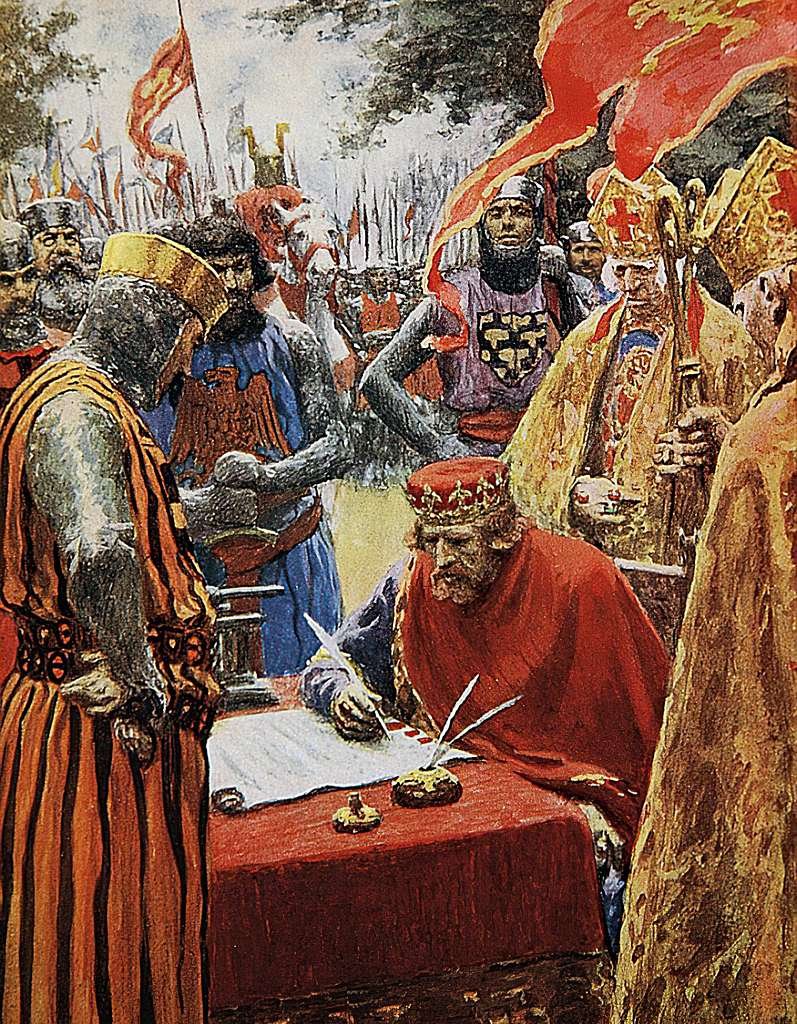
Events Leading Up
King John’s reign was tumultuous. He levied heavy taxes on his subjects. This caused discontent among the nobles. He lost significant territories in France, which further angered the barons. Tensions reached a boiling point in 1215. The barons demanded a charter to limit the king’s power. They captured London, forcing King John to negotiate. The result was the Magna Carta.
Significance And Legacy
The Magna Carta had profound effects. It established that the king was not above the law. It introduced the idea of due process. Nobles gained protection from illegal imprisonment. It also ensured swift justice. Over time, its principles influenced many other documents. The US Constitution and the Universal Declaration of Human Rights reflect its values.
|
Key Principle |
Impact |
|---|---|
|
Rule of Law |
Limited the king’s power |
|
Due Process |
Guaranteed fair trials |
|
Protection of Rights |
Safeguarded noble privileges |
The Magna Carta’s legacy endures. It symbolizes the fight for rights and justice. Its influence can be seen in many democratic societies today.
Public Perception
King John of England, who ruled from 1199 to 1216, remains a controversial figure. His reign saw many challenges, including conflicts with the barons and losing territories in France. Public perception of King John has been shaped by both contemporary views and historical reputation. Let’s explore how people saw him during his time and how history remembers him.
Contemporary Views
During his reign, many saw King John as a tyrant. He imposed heavy taxes and often clashed with his barons. These conflicts led to the signing of the Magna Carta in 1215. This document aimed to limit his power and protect baronial rights. Common people also viewed him unfavorably due to his harsh policies.
Religious leaders criticized King John as well. He had disputes with the Pope, which led to England’s excommunication for a period. This tarnished his image further among the faithful. Overall, contemporary views painted him as an unpopular and oppressive ruler.
Historical Reputation
Historical accounts have not been kind to King John. Historians often label him as one of England’s worst kings. His failures in France and his poor relationships with his barons are frequently highlighted. Many believe he lacked the qualities of a good leader.
Popular culture has also influenced his reputation. Stories and legends, such as those of Robin Hood, depict him as a villain. These tales reinforce the negative image of King John. Over the centuries, his reputation has remained largely unfavorable.
Death And Succession
King John, a controversial figure in English history, left a lasting impact on the monarchy. His death and the subsequent succession marked a significant moment. This period shaped the future of the English crown. Let’s explore his final years and the impact on the monarchy.
Final Years
The final years of King John’s reign were tumultuous. He faced rebellion from his barons. They were unhappy with his rule and heavy taxation. The barons forced him to sign the Magna Carta in 1215. This document aimed to limit his powers. It laid the groundwork for constitutional governance in England.
Despite signing the Magna Carta, peace did not last. King John continued to face opposition. In 1216, while campaigning in the east of England, he fell ill. His health deteriorated quickly. On October 18, 1216, King John died at Newark Castle. He was 49 years old.
Impact On The Monarchy
King John’s death led to a crucial transition. His nine-year-old son, Henry III, succeeded him. The young king’s reign began under the guidance of regents. This period of regency was vital for stabilizing the kingdom.
The Magna Carta, signed by King John, had long-lasting effects. It established the principle that the king was not above the law. Future monarchs had to respect the rights of their subjects. This document was a turning point for constitutional development.
King John’s reign and death left a mixed legacy. His struggles and concessions shaped the future of the English monarchy. The lessons learned during his rule influenced how future kings governed.
FAQs
Who Was King John?
King John was the King of England from 1199 to 1216. He is known for signing the Magna Carta in 1215, which limited the powers of the monarchy and laid the foundation for modern democracy.
What Is King John Known For?
King John is best known for signing the Magna Carta. This historic document restricted the king’s power and established certain legal protections for subjects.
When Did King John Reign?
King John reigned from 1199 until his death in 1216. His rule was marked by significant political and military challenges.
Why Did King John Sign The Magna Carta?
King John signed the Magna Carta under pressure from rebellious barons. They demanded legal reforms to limit his power and protect their rights.
Conclusion
King John remains a fascinating historical figure. His reign faced many challenges. His legacy includes the Magna Carta. This document shaped modern democracy. Despite his flaws, King John had a lasting impact. Understanding his story offers valuable insights. His life teaches lessons on leadership and governance.
History remembers him for both failures and successes. King John’s tale is a reminder of the complexities of power. His story continues to captivate and educate us today.


